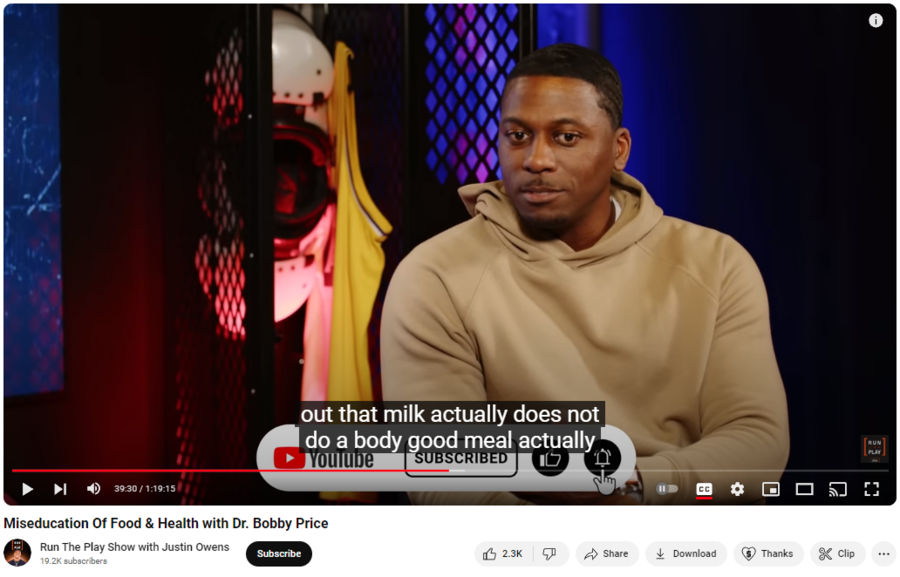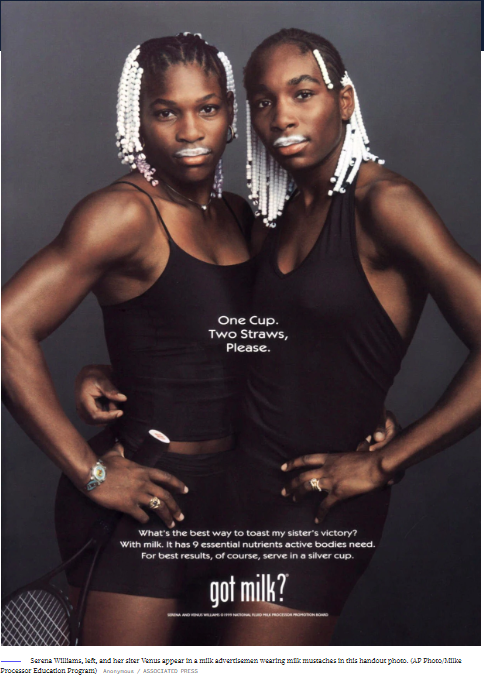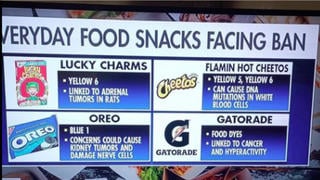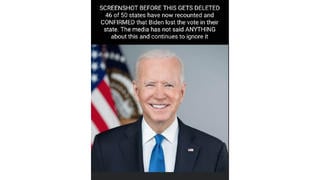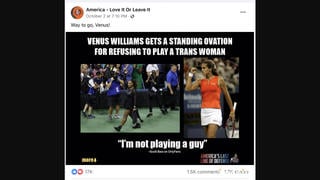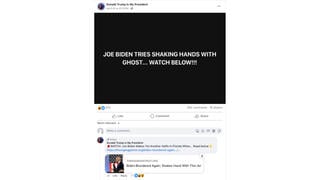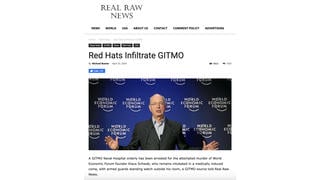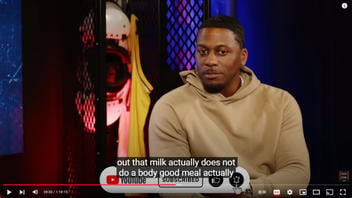
Is it against the law for athletes to endorse milk as a nutritious beverage? No, that's not true: There's nothing inherently illegal about athletes promoting milk as healthy, despite claims by Bobby Price in a YouTube video. Staff from the Federal Trade Commission, which regulates claims in advertising, told Lead Stories that "it's NOT illegal for them to say this."
The claim appeared in a video (archived here) posted on YouTube by "Run The Play Show with Justin Owens" on July 25, 2023, with the title "Miseducation Of Food & Health with Dr. Bobby Price." The video's caption said:
In this episode of the Miseducation of Food & Health with Dr. Bobby Price, we discuss the importance of eating a healthy and plant-based diet. Dr. Bobby discusses the dangers of following a diet that is heavily skewed towards processed foods and sugar, and recommends a lifestyle change that includes plenty of whole foods and plenty of exercise.
This is what the post looked like on YouTube at the time of writing:
(Source: Instagram screenshot taken on Fri Mar 22 17:52:29 2024 UTC)
The claim
The claim that it's illegal for athletes to promote milk as healthy comes from a 20-second section of the nearly 80-minute interview between host Justin Owen and Bobby Price, who is a pharmacist and nutritionist but not a medical doctor. Price runs a holistic herbal detox website. Here's what they said just over 39 minutes into the podcast:
Price: You remember the milk mustaches with all the athletes?
Owen: Mm-hmm.
Price: You notice you don't see that anymore?
Owen: Yeah.
Price: It's illegal. They did studies and they found out that milk actually does not do a body good. Milk actually causes you to leach calcium from the bones, making the bones more brittle.
Owen: Wow.
Price: So, that's why you don't see those commercials anymore.
Ad campaigns
The "Milk: It Does A Body Good" and "Got Milk?" ad campaigns ran from the early 1980s to the mid-2010s. They promoted the benefits of drinking milk. One of the ads, shown below, featured the milk-mustached, tennis-playing sisters Serena and Venus Williams:
(Source: NBC News screenshot taken on Fri Mar 22 20:17:43 2024 UTC)
There's no evidence to support Price's assertion that the ad campaign was dropped and athletes were forbidden to endorse milk because of bad publicity. In 2014, dairy producers shifted their marketing tactics as their slogan morphed into "Milk Life."
Federal Trade Commission
When asked by Lead Stories about the claim that athletes are now prohibited from pitching the benefits of milk, Federal Trade Commission (FTC) staff said in a March 22, 2024, email that "it's NOT illegal for them" to promote it, referring to the athletes and milk.
The FTC website states that the government agency's mission is to protect "the public from deceptive or unfair business practices and from unfair methods of competition."
Sports law expert
Helen "Nellie" Drew, a sports law professor (archived here) at the University of Buffalo School of Law, echoed the FTC. In a separate March 22, 2024, email, she said:
As far as I know, there is nothing which would prevent athletes from endorsing any product ... The veracity of the statement does not make it legal or illegal to publish. It just affects the credibility of the statement, and, of course, the speaker. Now, there may/may not be a cause for defamation of a product if an athlete were to make false claims derogating it. But, that is not the case here.
Response to claim: Centers for Disease Control and Prevention
In a March 22, 2024, email to Lead Stories, Dionne King, media specialist for the Division of Nutrition, Physical Activity and Obesity at the Centers for Disease Control and Prevention (CDC), provided the public health agency's response to the claim made in the video. It said:
The nutrients found in dairy foods highlights the importance of how much you need daily. This is especially relevant for calcium and vitamin D. Young children need vitamins and minerals like vitamin D and calcium to build strong bones. Rickets is a condition of softening of the bones that can occur in growing children. Most cow's milk sold in the United States is fortified with vitamin D.
During the adult years, it is important to pay particular attention in foods and drinks that contain calcium and vitamin D. This promotes optimal bone health and prevent the onset of osteoporosis.
The CDC said the National Institutes of Health Fact Sheets on calcium (archived here) and Vitamin D (archived here) provide more details on the benefits of milk and other dairy products.
Additionally, the Dietary Guidelines for Americans (archived here) from the U.S. Department of Agriculture state that healthy dietary patterns feature dairy, including fat-free and low-fat milk, yogurt and cheese.
National Dairy Council
The National Dairy Council, a nonprofit dairy nutrition research and education organization, told Lead Stories in a March 22, 2024, email that the claim in the video that milk makes "bones more brittle" is "incorrect." The group's response said:
- The opposite is true. The body of research indicates that dairy foods provide essential nutrients that are integral for building and maintaining healthy bones throughout the lifespan, from early childhood to late adulthood.
- The myth that we don't have to nourish our bones after childhood and adolescence needs to be busted. Bones are living, breathing tissue that turn over daily and this process requires a constant supply of nutrients, which are found easily in one concentrated, highly absorbable package in milk and dairy foods.
Read more
Additional Lead Stories fact checks of claims about milk and dairy can be found here.

